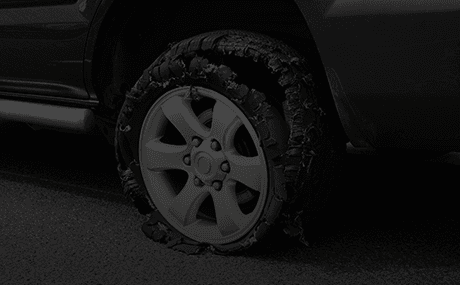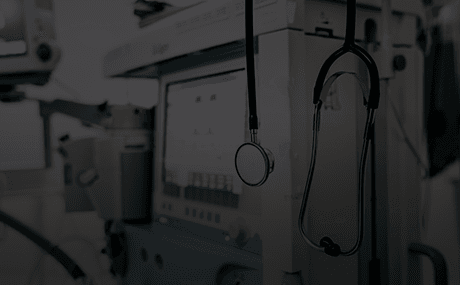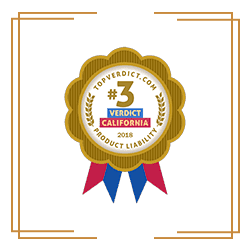

Relentlessly Pursuing the Best Possible Outcome
We've Recovered Hundreds of Millions for Our Clients
-
 $30m Product Liability Verdict
$30m Product Liability Verdict -
 $24m Wrongful Death Settlement
$24m Wrongful Death Settlement -
 $14m Medical Device Settlement
$14m Medical Device Settlement -
 $13.5m Personal Injury
$13.5m Personal Injury -
 $12m Child Wrongful Death
$12m Child Wrongful Death -
 $11m Personal Injury
$11m Personal Injury
Household Hazards Can Cause Serious Injury
A defective household appliance refers to a product that is faulty or has manufacturing, design, or safety issues, leading it to malfunction or pose risks to users. These defects can manifest in various ways, such as electrical malfunctions, structural weaknesses, or improper design that compromises user safety. Defective appliances can potentially cause injuries, damage property, or result in other hazards.
Often, defective appliances start household fires―meaning severe and life-threatening burn injuries are a real possibility. If you have suffered such an injury, our team can provide the knowledgeable support you need. Not only have we successfully handled several burn injury cases, but we have also investigated and processed countless fire scenes over the years. Founding Attorney David Shoop is a member of the National Fire Protection Association (NFPA) research group, so you can be assured we are up to date on the latest news and technologies for these cases.
In other cases, products can have breakable parts that are a choking hazard for children, sharp corners that can cause serious lacerations, unprotected wires that can cause electrocution, and similar individual hazards. Our homes should not be dangerous—and if you are injured by a flawed product, you should take advantage of your legal options.
Other common types of injuries caused by defective household appliances include:
- Chemical Exposure: Certain appliances, such as cleaning devices or products, may contain hazardous chemicals. If the product is defective and spills or leaks, it can lead to chemical exposure and related injuries.
- Trips and Falls: Defective appliances that have structural issues, loose parts, or poor stability can contribute to accidents, resulting in trips, falls, and related injuries.
- Asphyxiation: Appliances like gas heaters or faulty ventilation systems may produce dangerous gases, leading to the risk of asphyxiation if not properly designed or maintained.
- Eye Injuries: Malfunctioning appliances, particularly those with moving parts, may cause particles or debris to be ejected, leading to eye injuries.
- Lacerations: Appliances with moving or rotating parts, such as blenders or food processors, may cause lacerations if their safety features are inadequate or fail.
- Crushing Injuries: Appliances with heavy components or mechanisms may cause crushing injuries if they collapse or malfunction during use.
- Radiation Exposure: Certain appliances, such as microwaves or older models of televisions, may emit harmful radiation if they are defective. Prolonged exposure can lead to various health issues.
- Carbon Monoxide Poisoning: Appliances like gas furnaces or water heaters that burn fuel can release carbon monoxide if they are defective or not properly vented. Inhaling carbon monoxide can lead to poisoning and serious health complications.
- Allergic Reactions: Defective appliances, especially those involving air circulation or filtration, may contribute to the accumulation of dust, mold, or other allergens, potentially causing respiratory issues or allergic reactions.
- Punctures or Penetrations: Appliances with sharp or pointed parts, such as faulty blenders or kitchen tools, may cause puncture wounds or penetrations if they malfunction during use.
- Entanglement Injuries: Appliances with moving parts or exposed mechanisms, such as faulty washing machines or dryers, may cause clothing or body parts to become entangled, resulting in injuries.
Shoop | A Professional Law Corporation wants to hear your story if you or a loved one was injured by a defective or poorly designed product. Call us at (866) 884-1717 for a complimentary consultation.
In the last 14 years, Shoop & team's impressive track record includes hundreds of Product Liability cases resulting in verdicts or settlements exceeding $1 million. For a Product Liability team with an exemplary track record, clients choose Shoop.

Who is Liable for a Defective Household Product?
Liability for injuries caused by defective household products generally falls under the area of product liability law. Various parties in the product's supply chain can be held liable, depending on the specifics of the case. Here’s a breakdown of the potential parties:
- Manufacturer: The manufacturer of the product is often the primary party held liable, especially if the defect originated during the design or production process. This can include the manufacturer of the entire product or a component part that caused the defect.
- Retailer: Retailers can also be held liable, even if they were not involved in the manufacturing process. They have a duty to sell safe products, and selling a defective product can expose them to liability.
- Wholesaler/Distributor: Distributors or wholesalers who play a role in the product’s supply chain can also be held accountable. If they handled the product in a way that contributed to its defect, they might share responsibility.
- Importer: If the product was manufactured overseas, the importer can be held liable in the same way a manufacturer would be held accountable for a domestic product.
There are three primary legal theories under which a product liability claim can be made:
- Design Defect: The product's design is inherently unsafe.
- Manufacturing Defect: The product became unsafe due to errors during manufacturing.
- Marketing Defect (Failure to Warn): The product lacks adequate instructions or warnings, making it unsafe for use.
Call us at (866) 884-1717 to discuss your case. You can also reach our lawyers online if you're ready to hold a manufacturer accountable.



-lg.2309181221228.png)






.1).2309181221550.png)